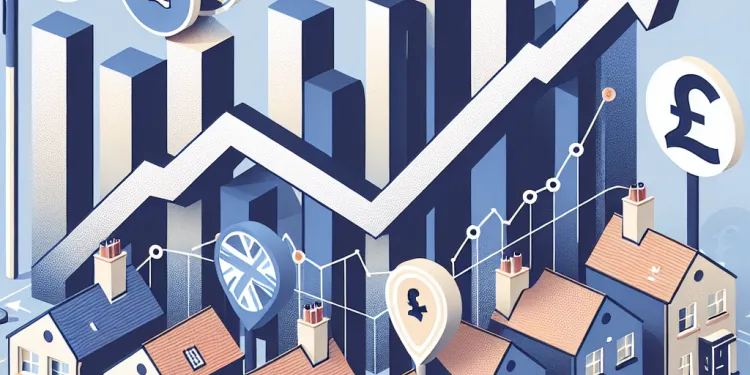
Find Help
More Items From Ergsy search
-
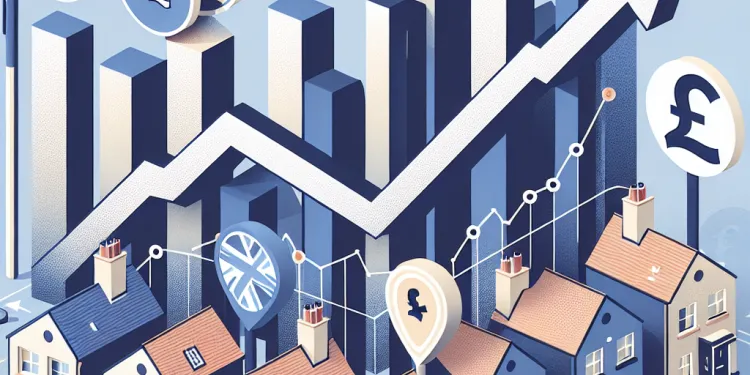
How does inflation affect the situation with housing benefits and rents?
Relevance: 100%
-

What are the proposed Cuts to Housing Benefits Amid Rising Rents?
Relevance: 75%
-

What is the relationship between rising rents and housing benefit cuts?
Relevance: 71%
-
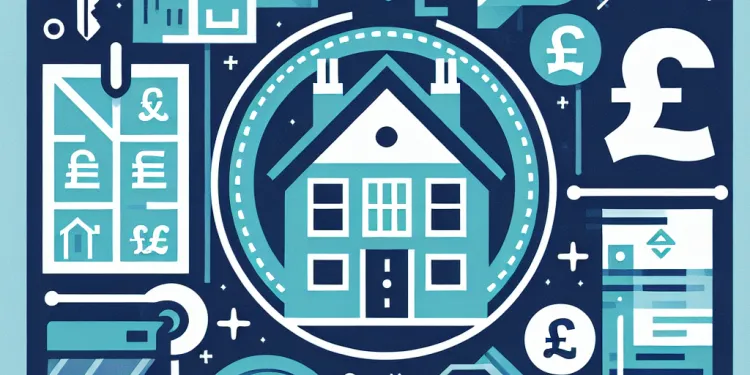
What measures are suggested to substitute the housing benefits?
Relevance: 54%
-

Are firefighter pension benefits adjusted for inflation?
Relevance: 51%
-
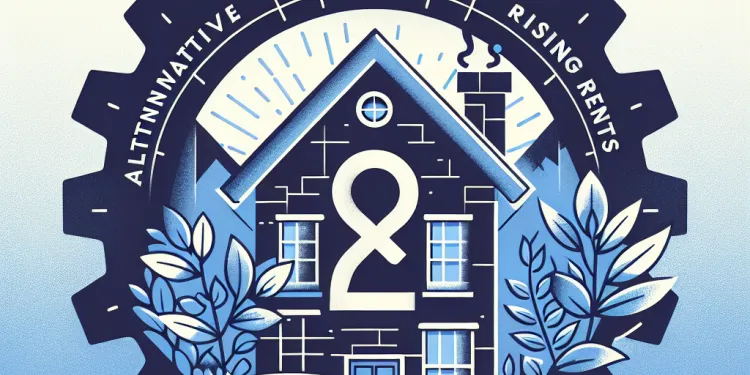
What alternative solutions are being discussed to combat rising rents?
Relevance: 49%
-

How does the reform impact renting costs?
Relevance: 49%
-
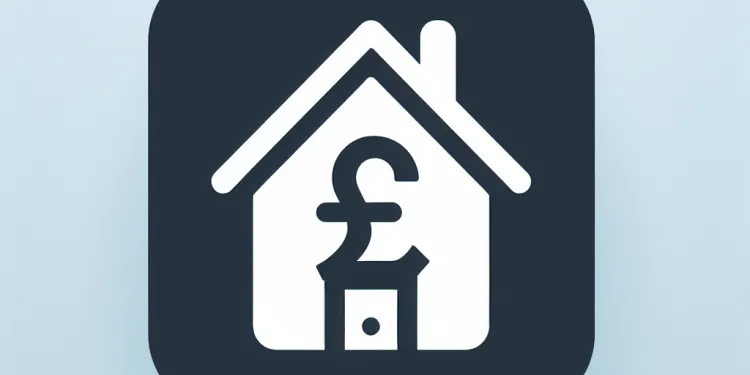
Who will be most affected by the proposed cuts to housing benefits?
Relevance: 48%
-

What are the potential long-term impacts of housing benefit cuts?
Relevance: 48%
-

Campaigners Urge Review of Child Benefit Rates in Light of Inflation
Relevance: 48%
-
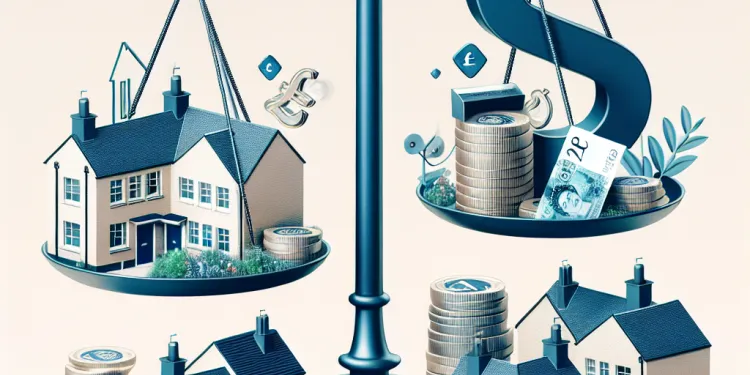
Is there a plan to offer additional support to offset housing benefit cuts?
Relevance: 48%
-

What is the main reason for the proposed cuts to housing benefits?
Relevance: 47%
-

How are rent increases regulated under the new law?
Relevance: 47%
-

Is there any legal recourse for those affected by the housing benefit cuts?
Relevance: 45%
-

Government Support Schemes for Families Affected by Inflation
Relevance: 43%
-
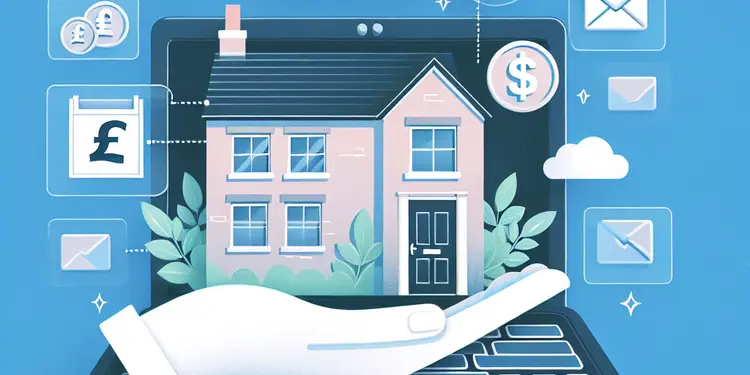
Is there assistance available for rent or mortgage payments?
Relevance: 42%
-

UK House Prices Fall for Third Consecutive Month
Relevance: 41%
-

How can individuals contribute to the discussion on housing benefit cuts?
Relevance: 39%
-

How do the reforms affect housing benefit tenants?
Relevance: 39%
-

Inflation Hits New High: How Shoppers Are Coping
Relevance: 37%
-

Are there any international examples being considered in handling housing benefit issues?
Relevance: 37%
-

Impact of UK Housing Crisis on Local Communities
Relevance: 36%
-

What housing assistance options are available for seniors?
Relevance: 35%
-

Addressing the Housing Crisis: Current Challenges and Solutions
Relevance: 35%
-

Can mobility equipment be rented?
Relevance: 35%
-

What changes affect pet policies in rented homes?
Relevance: 34%
-
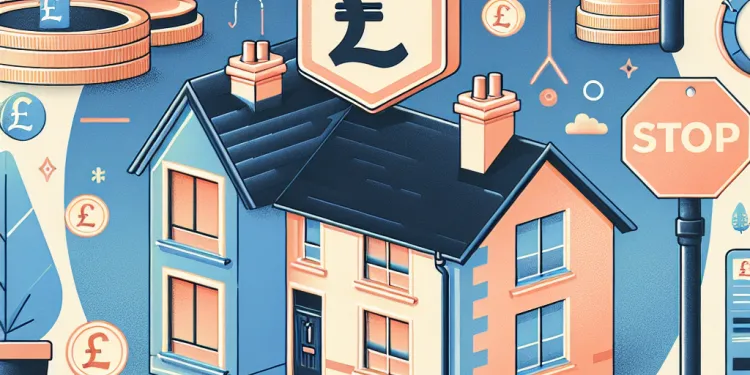
Can I stop an eviction if I catch up on rent payments?
Relevance: 34%
-

What are the new Tenancy Law Reforms in the UK in 2025?
Relevance: 33%
-
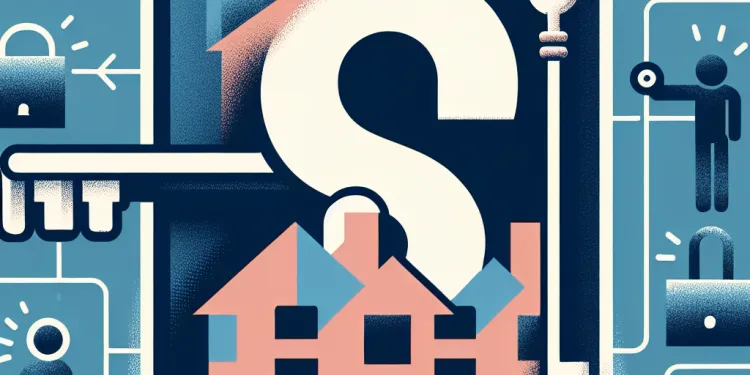
How have housing benefit recipients reacted to the proposed changes?
Relevance: 33%
-

Will the increase in the National Living Wage affect inflation?
Relevance: 33%
-

New Government Benefits for Low-Income Families
Relevance: 32%
-

Impact of Housing Shortage on Local Communities
Relevance: 31%
-

How do I find alternative housing quickly if evicted?
Relevance: 31%
-

What role do housing associations have amid these cuts?
Relevance: 30%
-

House Prices Soar: First-Time Buyers Share Their Stories
Relevance: 30%
-

What incentives are provided for sustainable housing?
Relevance: 29%
-

Amberwood House (Colten Care)
Relevance: 28%
-

What are the benefits of using cryptocurrencies?
Relevance: 28%
-
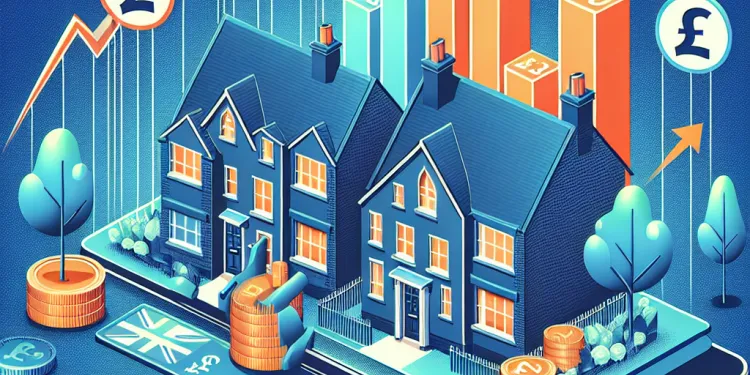
What can tenants do if they are affected by the cuts?
Relevance: 27%
-

Impact of Cost of Living on UK Communities
Relevance: 26%
Introduction
Inflation is a critical economic factor that influences various aspects of the economy, including housing benefits and rents. For individuals and families relying on housing benefits to meet their living costs, understanding how inflation impacts these benefits and housing costs is crucial. In this article, we will explore how inflation affects the situation with housing benefits and rents in the UK.
Inflation and Housing Benefits
Housing benefits in the UK are designed to assist individuals who struggle to pay their rent. These benefits are typically calculated based on the cost of rent, household income, and other factors. However, with inflation, the purchasing power of money decreases, leading to higher living costs. This can affect the real value of housing benefits, as they may not increase at the same rate as inflation, causing a gap between the benefit received and actual rent costs.
Impact on Rent Costs
Inflation can lead to an increase in rent prices. Landlords often raise rents to keep up with their own increasing expenses due to inflation, such as maintenance costs, property taxes, and mortgage interest rates if they have a variable-rate mortgage. As a result, when rents rise faster than housing benefits can adjust, tenants might find themselves paying a larger share of their income towards rent, reducing the disposable income available for other necessities.
Policy Implications
The impact of inflation on housing benefits and rents can pose significant challenges for policymakers. There is a need to periodically review and adjust housing benefit amounts to ensure they remain adequate against rising costs. Without such adjustments, there is a risk of increased housing insecurity, homelessness, or financial strain for low-income households.
Financial Strain on Households
For households dependent on housing benefits, inadequate adjustments in response to inflation can lead to financial difficulties. As rent accounts for a significant portion of monthly expenses, rapid rent increases without corresponding benefit adjustments may lead to rent arrears and debt. This financial strain can have long-lasting effects on the economic stability of affected households, pushing them below the poverty line.
Conclusion
Inflation has a substantial impact on housing benefits and rent costs. As the cost of living rises, it is essential for housing benefits to keep pace to ensure that vulnerable populations are adequately supported. Policymakers must consider the effects of inflation when setting benefit levels to mitigate the potential financial hardships faced by renters. Understanding these dynamics is crucial for both policymakers and recipients to navigate the challenges posed by inflation in the housing sector effectively.
Introduction
Inflation is a big word that means prices go up. It affects many things, like house benefits and rent. People who get help to pay for their houses need to know how inflation changes these things. This article talks about how inflation affects house benefits and rent in the UK.
Inflation and Housing Benefits
In the UK, some people get money to help pay their rent. This is called housing benefits. These benefits depend on rent costs, how much money people make, and other things. When inflation happens, money doesn't buy as much as it used to. This makes everything cost more. If housing benefits do not grow with inflation, they might not cover all the rent costs. This can be a problem for people who need help paying rent.
Impact on Rent Costs
Inflation can make rents go up. Landlords need more money because their costs are higher due to inflation, like fixing things, paying property taxes, and any loans they have. If rents go up faster than the help people get, they have to pay more of their own money for rent, leaving less for other things they need.
Policy Implications
Inflation affecting house benefits and rents is a big challenge for people who make rules. Benefits need to be checked often to keep up with rising costs. If not, people might face losing their homes or have money problems. It's important to make sure benefits cover enough of the rent to help people who need it.
Financial Strain on Households
When benefits don't change with inflation, families can struggle. Rent is a big part of the monthly bills. If rent goes up but benefits don't, people might owe money for rent or go into debt. This can make life very hard for families and may push them into poverty.
Conclusion
Inflation affects housing benefits and rent. As living costs go up, housing benefits need to go up too. This way, people who need help paying rent get enough support. Policymakers must think about inflation when deciding on benefit amounts. This will help people facing money problems due to inflation in the housing sector. Understanding this is important for everyone involved.
Frequently Asked Questions
What is inflation and how does it affect housing benefits?
Inflation is the rate at which the general level of prices for goods and services rises, eroding purchasing power. When inflation occurs, housing benefits may not keep pace with rising rents, leading to a gap for those relying on these benefits.
How does inflation influence rent prices?
Inflation can cause rent prices to rise as landlords face increased costs for maintenance, property taxes, and other expenses. These increased costs are often passed onto tenants in the form of higher rents.
Do housing benefits adjust for inflation?
Housing benefits may not always adjust in real-time with inflation. Some benefits are adjusted annually based on government policies, but these adjustments may lag behind or not fully match inflation rates.
What is the impact of inflation on low-income renters?
Low-income renters may struggle to afford increasing rent prices due to inflation if their income and benefits do not increase at the same rate, potentially leading to housing insecurity or the need to find more affordable housing.
How do governments typically respond to inflation in housing?
Governments may respond by increasing housing benefit amounts, implementing rent control policies, or providing additional support services to help renters cope with rising costs.
Can landlords increase rent due to inflation?
Yes, landlords may increase rent to cover increased costs associated with inflation. However, rent increases are often subject to lease agreements and local laws or regulations.
What are rent control laws, and how do they relate to inflation?
Rent control laws limit the amount a landlord can increase rent, often tying increases to inflation rates. These laws aim to prevent excessive rent hikes during periods of high inflation.
How often are housing benefits reviewed for inflation adjustments?
The frequency of housing benefit reviews varies by region and program, but they are typically reviewed annually. However, significant inflation may prompt more frequent reviews or adjustments.
Are all renters equally affected by inflation?
No, inflation affects renters differently based on factors such as income, location, and the type of housing they occupy. Lower-income individuals may be more adversely affected.
Can inflation lead to more housing benefit applications?
Yes, as rents rise due to inflation, more individuals may apply for housing benefits to help meet their housing costs.
How does inflation affect the value of housing benefits?
If housing benefits do not increase at the same rate as inflation, the real value of the benefits decreases, reducing their ability to cover rising housing costs.
Is inflation the only factor affecting housing benefits and rents?
No, while inflation is a significant factor, other factors such as supply and demand, local economic conditions, and government policies also affect housing benefits and rent prices.
Do housing benefit caps adjust for inflation?
Housing benefit caps may not adjust immediately for inflation, potentially limiting the assistance available to individuals as housing costs rise.
How might rising interest rates due to inflation impact renters?
Rising interest rates can increase borrowing costs for landlords, potentially leading to higher rents. They can also impact renters seeking to buy homes, keeping them in the rental market longer.
What is the role of the government in managing the impact of inflation on housing?
The government can implement policies such as increasing housing benefit allocations, regulating rent increases, and providing emergency assistance to help mitigate inflation's impact on housing.
How does inflation affect the supply of affordable housing?
Inflation can increase construction and maintenance costs, potentially slowing the development of new affordable housing and reducing the availability of existing affordable units.
Is there a link between inflation and homelessness?
Yes, as inflation drives up housing costs, those unable to afford increased rents without corresponding benefit increases or wage growth may face housing insecurity or homelessness.
Can tenants negotiate rent decreases during inflation periods?
It can be challenging, but tenants may negotiate with landlords, especially if long-term tenancy stability is valued or if rental demand decreases unexpectedly.
What resources are available for tenants facing inflation-related rent increases?
Tenants can access resources such as legal aid, housing counseling, and government assistance programs to help manage rent increases due to inflation.
Will inflation eventually decline, and how will this affect the housing market?
Inflation cycles can decline as economic conditions change. If inflation lowers, rent increases may stabilize, potentially easing pressure on benefits and tenant costs.
What is inflation and how does it change housing benefits?
Inflation is when prices go up. This means things cost more money than before.
When prices go up, you might need more money to pay for rent or your house.
If you get money from the government to help with housing, this is called housing benefits.
Sometimes, when inflation happens, the government might give you more housing benefits. This is to help you pay for your home when prices are high.
If you find reading hard, you can ask someone for help. You can also use tools that read the words out loud to you.
Inflation means prices for things we buy, like food and clothes, go up. This makes our money not go as far. When prices go up, sometimes the money people get to help pay for their homes doesn’t go up too. This can make it hard for people to pay their rent.
Here are some tips to help understand money better:
- Use a calculator to help with numbers.
- Ask someone else if you need help.
- Make a list of things you spend your money on.
How does rising prices affect rent?
When prices go up (this is called "inflation"), rent can get more expensive. This happens because people who own houses or buildings (called "landlords") have to pay more for things like keeping the house in good shape, paying taxes, and other costs. To pay for these things, they often make the rent higher for the people who live there (these are called "tenants").
Do housing benefits change when prices go up?
Sometimes, prices in stores go up. This is called inflation. It's when things you buy cost more money.
Housing benefits help people pay for their homes. It's important to know if these benefits also go up when other prices rise.
Here are some tips to help understand:
- Ask someone you trust to explain how housing benefits work.
- Use pictures or videos that talk about money and benefits.
- Look for simple guides or stories that talk about paying for your home.
Remember, it's okay to ask questions to understand better!
Money to help pay for houses might not change quickly when prices go up. Sometimes, the government changes this money each year, but the changes might be late or not enough.
How does rising prices affect people who rent houses and have little money?
People who do not have a lot of money might find it hard to pay for rent if the prices go up. If the money they earn or get from benefits does not increase too, they might have trouble keeping their homes. They might have to look for cheaper places to live.
What do governments do when house prices go up?
When house prices go up, it's called inflation. Here's what governments usually do:
- Spend Less Money: They might spend less money on new things.
- Raise Interest Rates: They can make borrowing money more expensive.
- Build More Homes: They try to build more houses to meet demand.
- Support People: They might help people afford homes.
These actions can help to reduce the price of houses.
Governments can help by giving people more money to pay for housing. They might also put rules in place to stop rent from going up too much. Another way they help is by giving extra support to people who rent their homes, so they can manage if prices go up.
Can landlords raise rent prices because of inflation?
Inflation means lots of things get more expensive. Sometimes, landlords might want to increase how much you pay for rent when this happens.
If you are unsure about rent changes, ask a trusted adult or look for help from a support worker. They can explain things better and help you understand your rights.
You can also use tools like a calculator to help you see how much rent you might have to pay. Different websites can also give you more information.
Yes, landlords can raise the rent if their costs go up because of inflation. But, rent increases must follow the lease rules and local laws.
What are rent control laws, and how do they relate to inflation?
Rent control laws are rules that keep the cost of rent from going up too much. These laws help people pay a fair price for their homes.
Inflation means that prices for things like food and clothes get higher over time. Rent control laws try to stop rent from getting too high when other prices rise.
To understand more, you can try using pictures or videos that explain rent control and inflation. You can also ask someone you trust to explain it to you in a different way.
Rent control laws help keep rent prices from going up too fast. They tell landlords how much they can raise rent. Usually, rent can only go up by a little bit, like how much more things cost each year.
These rules are there to make sure rent doesn't get too expensive when other prices are going up quickly.
To help understand these laws, you can use tools like videos or talk to someone who knows about renting. They can explain things better.
How often do housing benefits change because prices go up?
How often people check housing benefits can change. It depends on where you live and the program you have. Usually, they check every year.
But if prices go up a lot, they might check your benefits more often to make sure you get the right amount.
Do higher prices affect all renters the same way?
No, inflation does not affect all renters the same way. It depends on things like how much money they earn, where they live, and the kind of home they have. People who earn less money might feel the effects of inflation more.
Helpful tips: - Use picture charts to see how money changes over time. - Look for easy-to-read articles about inflation. - Speak to someone who can help explain things in simple words.
Can rising prices make more people ask for help with housing costs?
Yes, when rents go up because of inflation, more people might ask for housing benefits to help pay for their homes.
How does inflation change the value of housing benefits?
Inflation is when the prices of things go up. This means you need more money to buy the same things.
Housing benefits are money that helps people pay for a place to live.
When inflation happens, housing benefits might not be enough. This is because the money may not cover the higher costs of rent.
If you want help, you can use a calculator to see how much money you need. You can also ask someone you know who is good with money to explain it to you.
If the money you get for housing doesn’t go up the same way as prices do, it stops being enough. This means it might not cover the cost of your home anymore because things are getting more expensive.
Do only rising prices change housing money help and rent?
No. Inflation does make prices go up, but there are other reasons too. Things like how many houses are available, how many people want them, the local economy, and the rules set by the government also change housing money and rent prices.
It might help to use tools like picture stories or apps that read out loud to better understand these ideas.
Do housing benefit limits change when prices go up?
When things cost more money over time, it is called inflation. Housing benefit helps pay for rent. Sometimes, the money limit for housing benefit might not change when prices go up.
If you want to learn more or need help, ask someone you trust or look online for easy information.
The money people get to help pay for their homes might not go up right away when prices go up. This can mean that people may not get enough help to pay for their housing when it gets more expensive.
How do higher interest rates affect people who rent homes?
When interest rates go up, landlords have to pay more when they borrow money. This might make them raise the rent.
Higher interest rates also make it harder for people renting homes to buy a house. So, they might have to rent for a longer time.
If reading is tricky, try using audiobooks or text-to-speech tools. They can read the text out loud for you!
How does the government help with housing when prices go up?
When the cost of things goes up, it is called inflation. The government tries to help people find and pay for homes.
Here are some ways the government can help:
- Make rules to keep house prices fair.
- Offer money help for people who can't afford houses.
- Build more homes for people.
If you want to understand more, you can use a reading helper or ask someone to explain things to you.
The government can help by doing a few things to make housing costs less of a problem:
- They can give more money to help people pay for housing.
- They can make rules so rent does not go up too much.
- They can give extra help if there is an emergency.
If reading is hard, you can use tools like audiobooks or apps that read text out loud. These can make understanding easier.
What happens to cheap homes when prices go up?
When things cost more, like food and clothes, this is called inflation. Houses can also cost more because of this. Inflation can make it harder for people to find cheap homes.
Helpful tip: Use pictures or charts to see how prices change over time.
When prices go up, it can cost more to build and fix homes. This might make it harder to build new homes that people can afford. It can also mean there are fewer homes that aren't too expensive.
People can use pictures or videos to learn more about how money and prices work. Talking to someone who can explain things in a simple way, like a teacher or friend, can also help.
Does rising prices cause more people to lose their homes?
When things cost more money, do people find it harder to keep their homes?
Some helpful tools you can use are pictures or videos to understand better.
Yes, when prices go up, people might have to pay more for their homes. If they don't have more money from work or help from benefits, they might have trouble keeping their homes. They might even lose their homes.
Can people who rent ask for lower rent when things get more expensive?
Sometimes, things cost more money. This is called inflation. If you rent a place to live, you might want to ask the landlord if you can pay less rent.
Here are some helpful tips:
- Talk to your landlord in a kind way.
- Explain why you need to pay less rent.
- You can write a letter to ask.
- Get help from someone you trust, like a friend or family member.
Talking with your landlord can be hard, but you might be able to work things out. This can be true if the landlord wants you to stay for a long time or if not many people are looking for places to rent.
What can help renters if their rent goes up because of inflation?
People who rent homes can get help. They can talk to special lawyers, get advice about housing, and ask the government for help. This can make it easier to pay more rent if prices go up.
Will prices go down, and what will happen to house prices?
Sometimes, prices don't go up as much because things in the economy change. If prices stop going up so quickly, rent might not go up so much either. This can make it easier for people who need help with money and for people who pay rent.
Useful Links
This website offers general information and is not a substitute for professional advice.
Always seek guidance from qualified professionals.
If you have any medical concerns or need urgent help, contact a healthcare professional or emergency services immediately.
Some of this content was generated with AI assistance. We’ve done our best to keep it accurate, helpful, and human-friendly.
- Ergsy carfully checks the information in the videos we provide here.
- Videos shown by Youtube after a video has completed, have NOT been reviewed by ERGSY.
- To view, click the arrow in centre of video.
- Most of the videos you find here will have subtitles and/or closed captions available.
- You may need to turn these on, and choose your preferred language.
- Go to the video you'd like to watch.
- If closed captions (CC) are available, settings will be visible on the bottom right of the video player.
- To turn on Captions, click settings .
- To turn off Captions, click settings again.
More Items From Ergsy search
-

How does inflation affect the situation with housing benefits and rents?
Relevance: 100%
-

What are the proposed Cuts to Housing Benefits Amid Rising Rents?
Relevance: 75%
-

What is the relationship between rising rents and housing benefit cuts?
Relevance: 71%
-

What measures are suggested to substitute the housing benefits?
Relevance: 54%
-

Are firefighter pension benefits adjusted for inflation?
Relevance: 51%
-

What alternative solutions are being discussed to combat rising rents?
Relevance: 49%
-

How does the reform impact renting costs?
Relevance: 49%
-

Who will be most affected by the proposed cuts to housing benefits?
Relevance: 48%
-

What are the potential long-term impacts of housing benefit cuts?
Relevance: 48%
-

Campaigners Urge Review of Child Benefit Rates in Light of Inflation
Relevance: 48%
-

Is there a plan to offer additional support to offset housing benefit cuts?
Relevance: 48%
-

What is the main reason for the proposed cuts to housing benefits?
Relevance: 47%
-

How are rent increases regulated under the new law?
Relevance: 47%
-

Is there any legal recourse for those affected by the housing benefit cuts?
Relevance: 45%
-

Government Support Schemes for Families Affected by Inflation
Relevance: 43%
-

Is there assistance available for rent or mortgage payments?
Relevance: 42%
-

UK House Prices Fall for Third Consecutive Month
Relevance: 41%
-

How can individuals contribute to the discussion on housing benefit cuts?
Relevance: 39%
-

How do the reforms affect housing benefit tenants?
Relevance: 39%
-

Inflation Hits New High: How Shoppers Are Coping
Relevance: 37%
-

Are there any international examples being considered in handling housing benefit issues?
Relevance: 37%
-

Impact of UK Housing Crisis on Local Communities
Relevance: 36%
-

What housing assistance options are available for seniors?
Relevance: 35%
-

Addressing the Housing Crisis: Current Challenges and Solutions
Relevance: 35%
-

Can mobility equipment be rented?
Relevance: 35%
-

What changes affect pet policies in rented homes?
Relevance: 34%
-

Can I stop an eviction if I catch up on rent payments?
Relevance: 34%
-

What are the new Tenancy Law Reforms in the UK in 2025?
Relevance: 33%
-

How have housing benefit recipients reacted to the proposed changes?
Relevance: 33%
-

Will the increase in the National Living Wage affect inflation?
Relevance: 33%
-

New Government Benefits for Low-Income Families
Relevance: 32%
-

Impact of Housing Shortage on Local Communities
Relevance: 31%
-

How do I find alternative housing quickly if evicted?
Relevance: 31%
-

What role do housing associations have amid these cuts?
Relevance: 30%
-

House Prices Soar: First-Time Buyers Share Their Stories
Relevance: 30%
-

What incentives are provided for sustainable housing?
Relevance: 29%
-

Amberwood House (Colten Care)
Relevance: 28%
-

What are the benefits of using cryptocurrencies?
Relevance: 28%
-

What can tenants do if they are affected by the cuts?
Relevance: 27%
-

Impact of Cost of Living on UK Communities
Relevance: 26%


